Victims’ Families Call For Global Action To End Executions In Iran
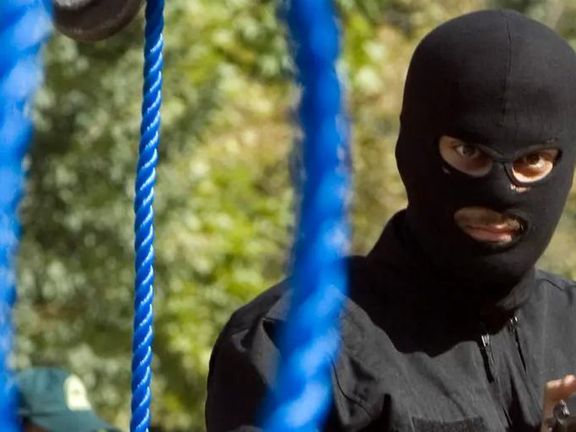
Over 80 families of those killed by the Iranian regime called for immediate global action to stop the recent execution spree in Iran.

Over 80 families of those killed by the Iranian regime called for immediate global action to stop the recent execution spree in Iran.
In a statement on Saturday, the petitioning families called the recent wave of executions in Iran a revenge by the Islamic Republic on the people for anti-regime protests.
They also called on all activists and organizations defending human rights in the world to do their best to end the death penalty in Iran and save the lives of prisoners at risk.
“Suffering from the deep wounds of losing our loved ones, whether on the street or at the gallows, we cry out to stop the executions and killings of people. End all death sentences immediately. Executions for any reason and for any crime must be stopped. We don't let you kill our loved ones anymore,” read the statement.
The wave of executions carried out by the Islamic Republic in recent weeks has led to yet another global outcry against the Iranian regime.
After the execution of Majid Kazemi, Saeed Yaqoubi and Saleh Mirhashmi, three protesters imprisoned in Isfahan (Esfahan) on May 19, people in different Iranian cities took to the streets and chanted slogans, burning symbols of the regime to express their determination to overthrow the clerical rulers.
Iranian expats in different countries also held protest rallies against the Islamic Republic on May 20, to slam the recent wave of executions in Iran which has taken the lives of 110 people in the past month.
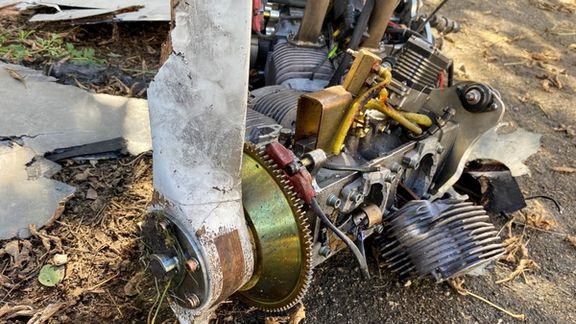
Tehran has accused Ukrainian President Volodymyr Zelenskyy of anti-Iranian propaganda in his call for Iran to halt the supply of kamikaze drones to Russia.
Foreign ministry spokesman Nasser Kanaani said Saturday that Zelenskyy’s comments were designed to attract more arms and financial aid from the West.
Zelenskyy in a video address on Wednesday called on Iranians to stop their slide into "the dark side of history" by supplying Moscow with drones.
Tehran’s comments came during a week when Russia again used swarms of Iranian drones against civilian targets in Ukraine.
Russia has used hundreds of Iranian Shahed drones to target Ukraine’s civilian and military targets and to overwhelm air defenses during mass missile attacks.
Iran initially denied supplying Shahed drones to Russia but later said it had provided a small number before the conflict began. Ukraine says the drones have played a major role in Russia's attacks on cities and infrastructure.
"The Ukrainian president's repeat of delusional claims against the Islamic Republic of Iran is in line with the anti-Iranian propaganda and media war aimed at attracting as many arms and financial aid as possible from Western countries," Kanaani said in a statement carried by Iranian media.
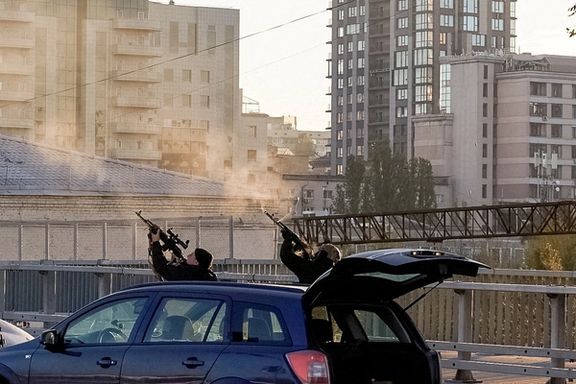
Ukraine, Kanaani said, has been refusing to allow an independent investigation into these claims. However, Ukraine has displayed numerous parts of downed Iranian drones and even one complete example in intact shape.
Russia has boosted its military cooperation with Iran since the launch of its full-scale invasion of Ukraine in February 2022. It has admitted using Iranian-made drones, but it is now seeking to boost its own production.
In his Wednesday address, Zelenskiy said: "The simple question is this: what is your interest in being an accomplice to Russian terror?"
"Your Shaheds, which terrorize Ukraine every night, mean only that the people of Iran are being driven deeper and deeper into the dark side of history," he said.
Many Iranians on social media have criticized Zelenskyy for addressing “Iranians” rather than the Islamic Republic regime for supplying the drones to Russia. They highlighted that Iranians are also victims of the regime and they have actually helped Ukraine by staging anti-government protests throughout 2022 and 2023.
Western powers supporting Ukraine and supplying air defense systems have condemned Iran’s military cooperation with Russia. The United States, which has suspended nuclear talks with Iran has listed Tehran’s weapons supplies to Moscow as one of the issues preventing fresh talks.
Washington and its key European allies have also imposed sanctions on dozens of companies and individuals that they discovered assisting Iran’s drone program or involved in their shipment to Russia.
In response to a question by Iran International in February about reports that Iran has supplied new drones to Russia, State Department’s former spokesperson Ned Price said that the US has been warning about this expanding “two way” relationship since last year.
Price reiterated that “we are taking action to do everything we can to counter this relationship and to counter the transfer of technology…we have exposed this linkage and we are continuing to galvanize countries around the world to maintain focus on this.”
He went to characterize the alliance between Moscow and Tehran as a “profound threat to the people of Ukraine but also a security relationship that has the potential to be a threat way beyond.”
It was the US national security advisor Jake Sullivan who first warned in July 2022 that Iran was planning to supply military drones to Russia.
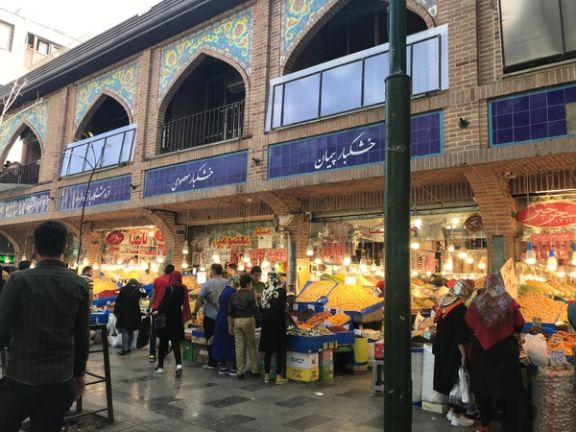
Iran intended to import radiation-contaminated chickens from Belarus despite the risk to the public, an official document reveals.
The disclosure comes in a "very confidential" letter from the Ministry of Agriculture published on Friday by Nariman Gharib, an internet researcher.
The document was addressed to Peyman Pak, Deputy Agriculture Minister, and was signed by Mohammad Ali Nasiri, Advisor to the Minister and Head of the Security of the Agriculture Ministry on May 10.
In the letter, Asiri admits that due to the radioactive contamination in parts of Belarus after the Chernobyl tragedy, the import of chicken from the country is banned.
In a tweet, Gharib said it means that the Islamic Republic intended to import chickens from Belarus to control the market but in fear of political and health consequences, the import from Belarus was stopped.
The letter also expressed concern about the disclosure of the issue in the Farsi-language media abroad.
It stated that “chicken contaminated with radioactive substances may lead to specific diseases and risks caused by the production of food with contaminated raw material.”
Earlier this year, Iran and Belarus agreed a deal on agricultural cooperation, under which the former Soviet state sends products including poultry, grain and dairy supplies.
This is not the first time the Islamic Republic has imported or intended to import contaminated food. Two years ago, ISNA news agency reported that about five thousand tons of livestock feed contaminated with aflatoxin had been imported but stopped at customs.
Jalal Mahmoudzadeh, a lawmaker, said on Saturday that in the past year three million tons of wheat was imported from Russia, which was highly contaminated with lead.
He said it was not possible to stop the shipments but that they were mixed with stored wheat to lower the overall lead level.
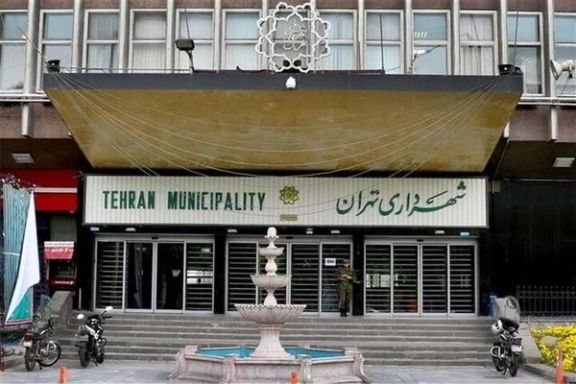
A member of Tehran City Council says financial irregularities worth nearly 400 million dollars have been reported in Tehran municipality.
Nasser Amani said on Friday that the mayor of Tehran, Alireza Zakani has approved such a corruption in a press conference.
There are no details about the sector in which this irregularity has happened or who has been behind it. However, in his press conference earlier this month Zakani refused to announce any names saying that he is only interested in fighting against corruption.
“One of the amounts we want to get back is 400 million dollars. We do not hesitate to take back the rights of the people,” said Zakani during his press conference on May 1.
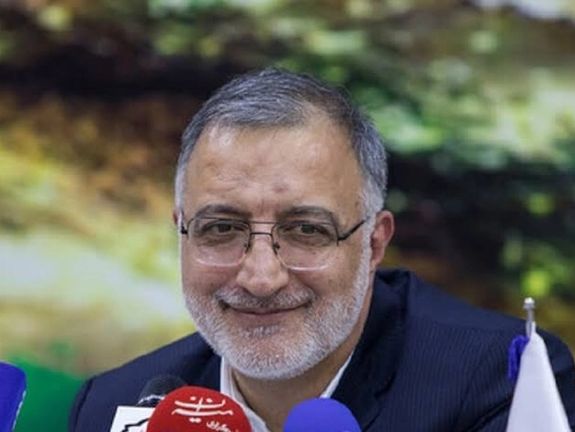
Within the past weeks, there were several reports on the arrest of people close to Zakani in his office, however the ultra-conservative mayor of Tehran tries to blame the previous government for being behind the corruption.
“The financial corruption of several employees of Tehran municipality were discovered with the admirable vigilance of security organizations, and the case was sent to the judicial authorities," claimed the Municipality Spokesman Abdol-Taher Mohammadkhani earlier this month.
Tehran municipality is known for corruption cases. A large-scale corruption was revealed during the mayoral tenure of Mohammd Baqer Qalibaf (Ghalibaf) who is currently the country’s parliament speaker.
His successors claimed that more than $5 billion was misappropriated or wasted during Qalibaf’s term as mayor from 2005 to 2017.
Qalibaf has been accused of financial corruption a few times over the last decades. But the cases have been dismissed without being investigated, with observers attributing this to his relationship with Supreme Leader Ali Khamenei.
Last year, a leaked audio file of IRGC commanders discussing massive financial corruption involving Parliament Speaker Mohammad-Bagher Qalibaf raised a storm in Iran.
The 50-minute audio-file includes a conversationbetween the former IRGC Commander Mohammad-Ali Jafari and his Economic Affairs Deputy Sadegh Zolghadr in 2018 about corruption involving IRGC's Qods Force and Tehran municipality headed by Qalibaf.
The discussion in the recording directly involved Qalibaf, former Qods Force Commander Ghasem Soleimani, IRGC Coordination Deputy Jamaloddin Aberoumand, and Chief of the IRGC Intelligence Organization Hossein Taeb in covering up the embezzlement of 80,000 billion rials (around $3 billion at the time) between Tehran municipality and a firm controlled by the IRGC.
The money was mainly intended for funding the activities of Qods Force but somehow disappeared in the dealings between the municipality and Yas Holding, a subsidiary of IRGC's Cooperatives Foundation active in services, dealership, and subcontracting in the housing sector.
Yas Holding was officially dissolved in 2018, two years after its establishment, following the arrest of some of its officials. Four of the accused, including Qalibaf's deputy in Tehran municipality, Isa Sharifi, were put on trial and were sentenced to long prison terms and returning some of the huge sums they had embezzled.
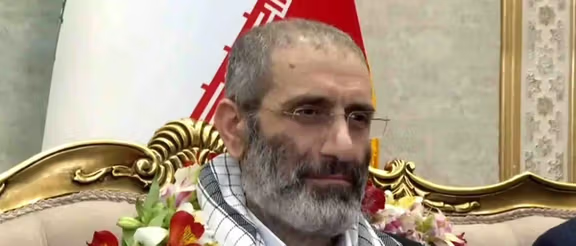
Activists are outraged over an Oman-brokered swap deal according to which Iranian diplomat convicted of terrorism was freed in exchange for a Belgian hostage.
Asadollah Assadi, a former attaché at the Iranian embassy in Austria who was convicted of plotting to bomb a gathering of the exiled opposition group Mujahedin-e Khalq Organization (MEK) near Paris on June 30, 2018, was released and arrived in Tehran on Friday.
Belgian aid worker Olivier Vandecasteele, who was detained in 2022 and sentenced to 40 years in prison and 74 lashes for alleged “spying and cooperation with the United States, money laundering and smuggling $500,000 out of Iran,” was also released as part of the deal.

The Belgian Parliament ratified the controversial prisoner swap treaty with Iran on July 20, but a temporary ban on the extradition of the convicted diplomat was announced by the Brussels Court of Appeal late in July following numerous complaints.
The critics of the accord warned that such a treaty would effectively establish Belgium as a “sanctuary country” for terrorist operations, and a haven for Iranian intelligence services to maintain a European command center. In March, Belgium's Constitutional Court rejected a request to annul a prisoner exchange treaty with the Islamic Republic paving the ground for the release of the diplomat.
Iranians and human rights activists feel betrayed and disappointed that Belgium released Assadi after huge rallies and and dozens of officials warning against such an act. Following his release, Iranian expatriate communities held protests in several cities to denounce Belgium's move to free the regime's diplomat.
Rights group Amnesty International said in a statement that "By transferring Assadollah Assadi to Iran, the Belgium government has contributed to a climate of impunity for the extraterritorial targeting of Iranian dissidents for extrajudicial execution, torture, and other ill-treatment, and undermined the rights of victims to justice, reparations and guarantee non-recurrence of violations."
In an interview with Iran International on Friday evening, Darya Safai, an Iranian-born member of the Belgian Parliament, described the day as “a black and bitter day for impunity and injustice for Iran and the world.”
“The Islamic Republic of Iran takes innocent people as hostages, blackmails, plans terror attacks on European soil, kills brave freedom fighters in Iran and yet the world continues to grovel and do as they demand,” she said, adding that “This regime will never stop capturing victims if it is rewarded in this way without a problem.”
According to the lawmaker, the Belgian government was supposed to inform the plaintiffs in Assadi's case before releasing him, but it did not do so.
Alireza Akhondi, an Iranian-born member of the Swedish parliament who has been very active in defending the ‘Women, Life, Liberty’ movement, also told Iran International that it is a shameful day in history.
He mentioned several names of the iconic martyrs of the uprising who have lost their lives in the path of Iran’s freedom, saying that such an event proves that the opposition should expand its efforts to make the world stand against this regime, which has been using the hostage-taking tactic for 44 years.
Reacting to the release of Assadi, exiled Prince Reza Pahlavi said that exchanging hostages for the regime’s terrorists “will not only fail to end the Islamic Republic’s hostage taking, but it will also encourage the regime to take further hostages and carry out further acts of terrorism.”
Pahlavi added that during his meetings with European lawmakers and politicians, he made it clear that the only solution lies in coordinated action from a position of strength. He called on world countries to “recall ambassadors from Tehran and expel the regime's ambassadors; Put the IRGC on the list of terrorist organizations; Help the people of Iran achieve the freedom and democracy that they deserve and are sacrificing for.”
The National Council of Resistance of Iran, an organization parallel to MEK and led by its leader Maryam Rajavi, which had mounted a fierce campaign against the deal, issued a statement following the prisoner swap, condemning it as a shameful appeasement with the Islamic Republic’s policy of hostage taking.
“The release of the terrorist, who organized and commanded the biggest criminal act in Europe after the Second World War, by violating the Court’s order, is a shameful ransom for terrorism and hostage-taking. This will embolden the religious fascism ruling Iran to continue its crimes in Iran through repression and regional and international terrorism,” read their statement.
The group added that “The release of this terrorist diplomat takes place while the Constitutional Court had clearly stated in its judgment that the Belgian government should inform the victims before transferring the convicts so that they have the opportunity to once again take the issue to court.”
The Islamic Republic has a long history of hostage diplomacy, which started soon after the establishment of the regime, with taking hostage American diplomats and embassy staff in 1979 for 444 days. UN experts and international human rights organizations say that the Islamic Republic takes foreigners hostage to extract concessions from the West.
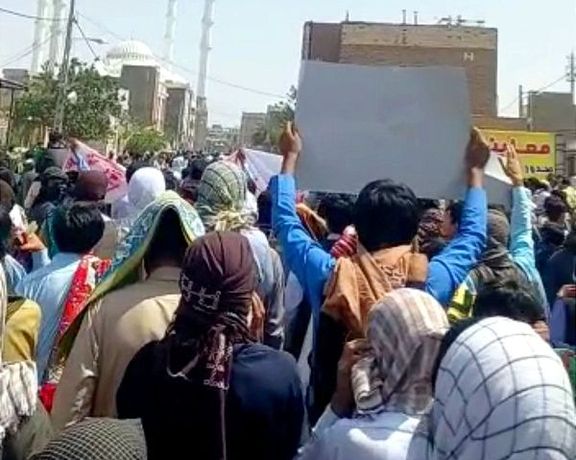
Friday was another weekend of protests in Iran’s Sunni majority Zahedan, with people pouring into streets to chant slogans against Supreme Leader Ali Khamenei.
In the 34th consecutive Friday of protests against the Islamic Republic, thousands of demonstrators took to the streets of Zahedan in south-eastern Iran amid the heavy presence of security forces.
Haalvsh, an organization monitoring events in Sistan-Baluchistan province, reported that security agents and the plainclothes agents detained at least ten people.
Like the past weeks, the protesters called for the overthrow of the Islamic Republic chanting “This is Our Last Message, Our Goal is to Overthrow the Regime”.
Angry Sunni Baluch residents also chanted “Death to Khamenei, Damn Khomeini” and “Death to the IRGC” after the Friday prayers.
They further slammed the recent executions spree in Iran which has hanged almost 110 people in the past month.
NetBlocks, which monitors cybersecurity and the governance of the internet, reported that the city experienced another major internet outage this afternoon.
“The recurring disruption adds to the pattern of weekly internet shutdowns aimed at stifling anti-government demonstrations during Friday prayers,” NetBlocks tweeted.
In his sermon, the Sunni Friday prayer leader of Zahedan denounced the pressures placed on lawyers and prisoners and called for the right to demonstrate peacefully.
Mowlavi Abdolhamid also urged lawmakers to visit prisons to ensure fair treatment for all inmates.
The people of Zahedan have been protesting every Friday since September 30, when security forces opened fire on civilians, killing nearly 90 protesters.
Zahedan is one of the few Sunni-majority cities in predominantly Shiite Iran.